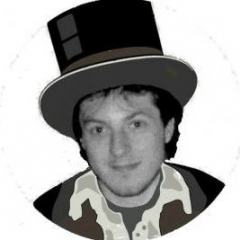Writing Tip Writing Tip: Character Building
Interesting characters are usually one of the most important elements of good writing. That's why this great tip by CassieQ is a welcome addition to our GA News Blog. If you have a great tip that you'd like to share with the community, let me or Renee Stevens know.
Character Building
by
CassieQ
To be 100% honest, writing about characters was hard. Characterization is something that always seemed to flow naturally, so trying to take it apart and explain the mechanics of how it works was a little weird.
I looked through all my stories, stories written by other authors and even stories that I really don't like that much and thought about the characters in them and I found what bound them all together.
Characters WANT something.
That's all there is to it. There is the basic idea.
They want something. They desire something.
Now make sure they don't have it. That's motivation. This ties into plot as well, as the characters going after what they want usually propel plot.
Nothing is going to happen if your character is sitting on the couch with the thing they want. The story is over at that point.
Silly example: I want a Slinky. But I don't have one. So there is the start of the story--a search for a Slinky. Now I have to decide how to get the Slinky. I could go to a store and buy one. I could steal the one that belongs to the child sitting outside the window. I could try to figure out how to make one.
But wait…don't give them what they want yet. If I get my Slinky right away, then the story is over. And it's still early.
What kind of character am I? That's something to think about. So what choice would I make? Am I the kind of character that would steal--and from a child no less? Am I a playful and creative enough to do it myself? I don't want to buy it from a store (boring) unless something happens at or on the way to the store.
So I steal the Slinky. There. I have what I want. Now the story is over, right?
No. Not yet. The Slinky is an external desire, which leads to an external motivation=steal the Slinky.
Now, I have stolen the Slinky and I have it in my possession, but I am unhappy. I have stolen from a child who is now wailing outside the window and I am overcome with guilt. (Or I am a sociopath, but that is a different story).
So now I want to overcome my guilty feelings for my theft. This is an internal desire. It is something that I want to overcome. This is my new desire, my new motivation.
Then I, as a character, have to figure out how to resolve it. I can give the Slinky back to the child and apologize. I could buy her a new one. Or I could become a vigilante, to bring justice to all children who have their cherished toy stolen by a bored writer.
And just take it from there...
The above is just a very basic, rough idea of how a character starts (for me anyway). There are obviously more elements that need to be considered, like the character's background (maybe I stole the Slinky because that is how my mother get stuff she wanted…she stole it). Think about the character's traits--personality, appearance, mannerisms, speech--because these usually make your characters fuller and rounder and have an effect on the course of action they will take.
I, for example, like to write about character's feelings a lot: toward other characters, towards themselves, toward obstacles and anything else I can find. It helps me learn much more about characters if I think about how they feel towards certain things and certain scenarios. But do what works for you. If you are not sure, experiment.
There are a few more things to remember about characters.
Watch out for stereotypes. You know who they are. The ditzy blond. The curmudgeonly old geezer. The shy awkward geek. If you must use them, fine, but break the stereotype somehow. If a character must be a ditzy blond, tell us why (I smell a back-story)!
Write who you like. If your character isn't the kind of person you will find interesting, then your story isn't going to go anywhere, and you might lose your drive to write. I like young adults and teenagers as my primary characters. I think they are interesting, and it is easy to draw upon my own experiences growing up. If you like to write about professional, working class adults, write about those. If you like to write about feisty old people, write about those. If you like to write about vampires and werewolves, write about those. Some characters, like villains or antagonists, might not be people you like, but they should at least interest you in some way.
Give your character some issues. It's that internal motivation. There are some characters that don't have a whole lot of internal motivation (Indiana Jones, for example, has mostly external motivations….grab the treasure, escape the booby trap, get the girl, etc) but most characters, especially well developed ones, end the story a different person than when they started it.
Character profiles: If they help you, use them. If they don't, then don't. I keep a very short dossier on my character's physical attributes just to make sure I don't get eye or hair color mixed up (and even now that still happens). But there are character profile templates all over the internet and in many writing books.
That is about all I can think of to say about characterization. If you have something to add, please feel free to comment. Or if you disagree with me on something, be sure to let me know, because I like arguing with people as well ![]()
Thanks for your time! Happy writing!
-
 2
2






4 Comments
Recommended Comments
Create an account or sign in to comment
You need to be a member in order to leave a comment
Create an account
Sign up for a new account in our community. It's easy!
Register a new accountSign in
Already have an account? Sign in here.
Sign In Now